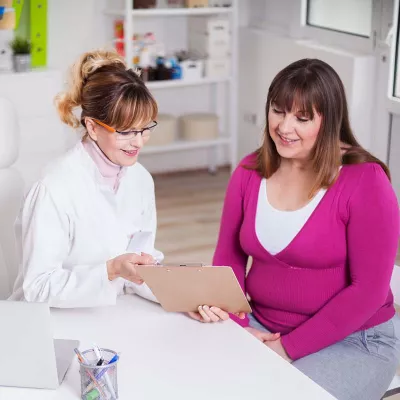
A Clear View for a Healthier You
A colonoscopy is more than a screening — it’s one of the most effective ways to test for colon cancer, catch it early and safeguard your health. We’re here to answer your questions and help you feel confident and prepared for your next colonoscopy.
Preventing Colon Cancer Before It Starts
A colonoscopy is a common outpatient procedure that helps a gastroenterologist closely examine the inside of your colon. Using a long, flexible tube with a tiny camera at the tip, your doctor gently guides the scope through your colon to look for potential concerns, like inflammation, bleeding or polyps (precancerous growths). If your doctor finds any polyps during your procedure, they'll typically remove them right away. Removing these polyps is a proactive way to help prevent them from growing or developing into colon cancer.
A Step-by-Step Look at Getting a Colonoscopy
After arriving, you’ll meet with your gastroenterologist and anesthesiologist. They’ll explain what you can expect during and after your procedure. This is also your opportunity to ask any remaining pre-procedure questions.
When it’s time to begin, your care team will bring you to the procedure room. While the procedure itself typically takes about 30 minutes, your doctor may need additional time to remove any polyps. Most patients are asleep during the entirety of the colonoscopy.
After your procedure, you’ll be brought to a recovery area where you’ll continue to rest. Once you're awake and alert, your doctor will review the results with you. If polyps were removed, they’ll be sent to a lab for testing, which may take up to a week.
Because you’ll receive anesthesia, you’ll need a trusted family member or friend to drive you home. Take it easy for the remainder of the day; stay hydrated and rest. Avoid driving, working, operating machinery or making important decisions until the following day.

Preparing for Your Colonoscopy
Once you’ve scheduled your procedure, you’ll receive colonoscopy prep instructions to help you prepare. These instructions, also linked below, include a prep week schedule and helpful tips on foods to avoid before your colonoscopy, maintaining a clear liquid diet, pre-procedure medication use, and more.
